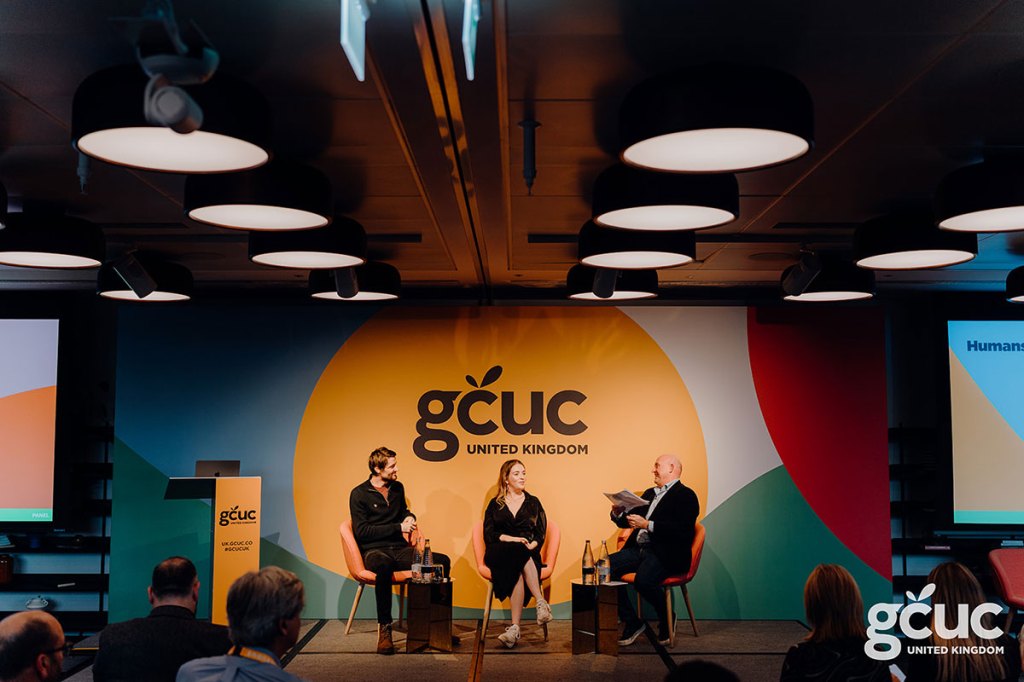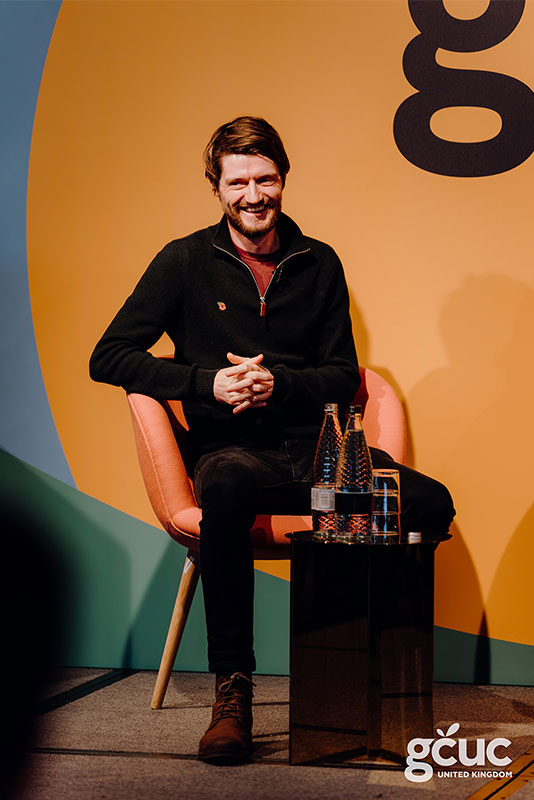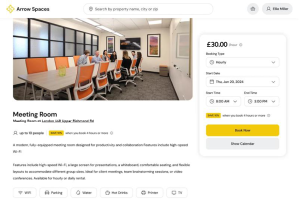GCUC UK – The Tech Shift, AI’s Influence & the Human Element in Coworking
In November, the great and the good of coworking within the UK gathered in London for GCUC UK 2023. Delegates were treated to some fascinating talks and discussions, including one discussion chaired by Yardi’s Regional Director, Justin Harley. Featuring Platf9rm’s General Manager Jess Samson and Christopher Weeks, co-founder and CEO of Bounce Technologies.

The Rise of Tech Fatigue
The conversation began with the panellists discussing how the world of work has changed since the global pandemic. For Samson, change is best signified by simply looking at job listings in the UK. This is due to over 46% of job opportunities being labelled as hybrid. While these cultural changes have been welcomed by many and are here to stay, Samson noted that there also seems to be a growing sense of frustration over the indiscriminate use of technology.
Harley echoed that sentiment, stating people are tired of Zoom and QR codes and are increasingly looking for human experiences. Samson went on to discuss Platf9rm’s experience during the pandemic, what worked for them, and what didn’t:
“Over Covid, we tried doing the online thing, but people didn’t massively buy into it. Calling people and speaking to members is what really connected. Helping them with desk booking and simple things like that is what helped.”

Harley agreed, having personally used Platf9rm over the pandemic to get out of the house while working remotely. He stressed how great the experience was and how easy the Platf9rm team made the process. This highlights Samson’s point that coworking is built upon great experiences. This is why she is hesitant about coworking implementing “gimmicky” technology that might threaten it.
Harley asked AI expert, Weeks, his perspective on AI, particularly from a security perspective. Weeks compared the current state of AI to privacy concerns a decade ago, emphasising the need for education and regulation. He identified copyright as a key area facing challenges and suggested that AI could enhance efficiency, especially in the service-based UK economy.
Finding a Balance with Technology
The discussion turned towards the balance between being more human and more digital, stressing the importance of transparency in coworking.
Harley brought up the reluctance in coworking regarding sharing prices online. He asked the panellists what AI can do to address this problem. Weeks, who is a frequent user of coworking spaces, noted how the process of getting a coworking space is much harder than it needs to be. Especially as so much of the process needs to be done in person. In his view, the user journey must be digitalised. He pointed out that dealing with requests and challenges, for example, can now be done with chatbots such as ChatGPT.
Samson was more sceptical. Though she could see the value in a chatbot FAQ system, her instinct is not to trust AI to interact with members. “We want to encourage face-to-face communication, though at the end of the day, it comes down to the personal preference of the consumer.”
AI in Coworking – From Efficiency to Job Creation or Replacement?

This led on to the popular topic of AI and what it will mean for jobs in the sector. Samson was adamant that she does not believe that AI will replace humans in coworking and flexible workspaces. She suggests it could create more job roles as “AI will be used as a tool for increased efficiency, rather than replacing staff.”
Weeks on the other hand was more sceptical. He expressed that it could pose a risk for mid to lower-tier roles, but agreed there will be a need for humans to oversee the process. “From a tech point of view, AI finds the most probable solution to a problem, which might not be the correct one.”
There was consensus among the panel that while AI can do so many manual tasks, creativity will always come from human beings.
“AI doesn’t have empathy or creativity – these are intangible human qualities.”
Jess Samson, General Manager for Platf9rm
The Future of Tech & AI in Flexible Workspace Management
The panel’s focus then turned to what coworking spaces need to do to improve their technology systems. Weeks noted that the most important thing is to first work out what you want to achieve with technology. Especially ensuring you have good data. He also suggested AI can be a powerful tool for gauging customer sentiment. You can put your communications into ChatGPT and it will quickly tell you the recurring key issues and themes.
The panellists concluded by agreeing that technology and AI will play an important role in the management of coworking and flexible workspaces in the future. The key takeaway, however, was that operators should not lose sight of the importance of human connection and interaction. It is this that sets coworking apart. As such, tech and AI should be used to facilitate as well as enhance human connection rather than replace it.
See how our all-in-one solution for coworking and flexible workspace can help you provide a human touch – get in touch by booking a demo below.
Imagery provided by GCUC – Ashley Ford Photography
Follow Yardi Kube on LinkedIn for the latest news, customer stories and blog posts.




